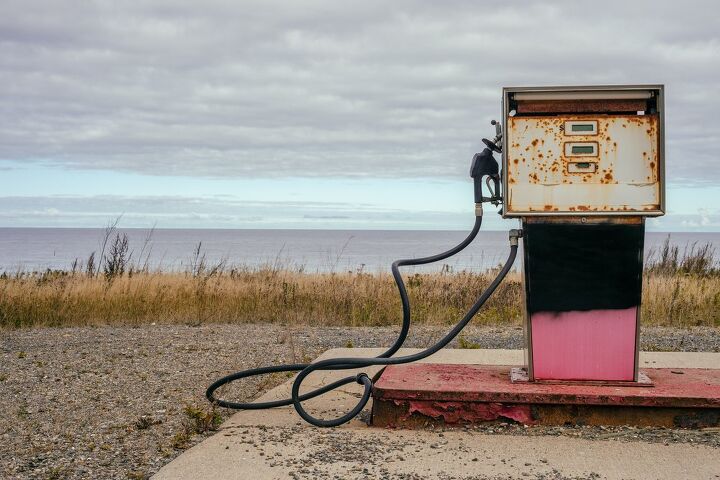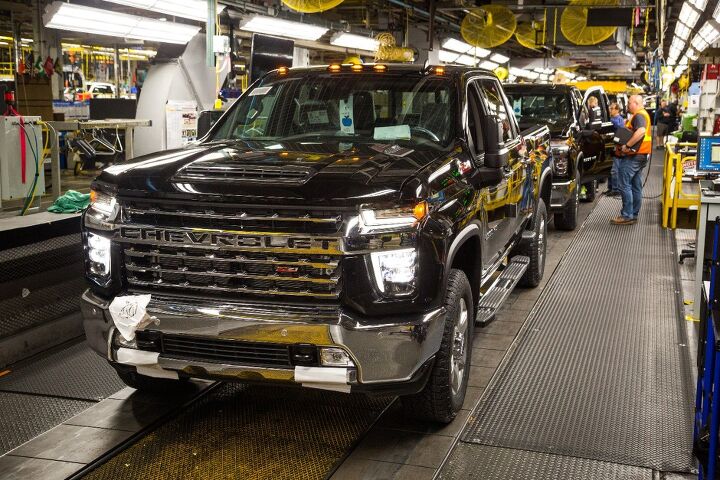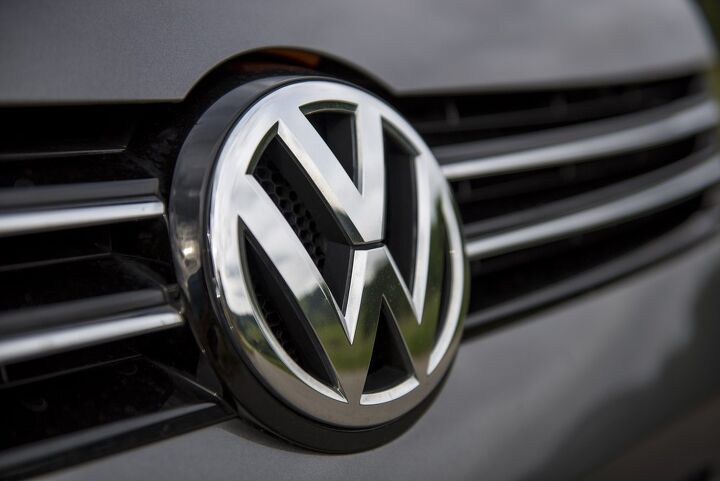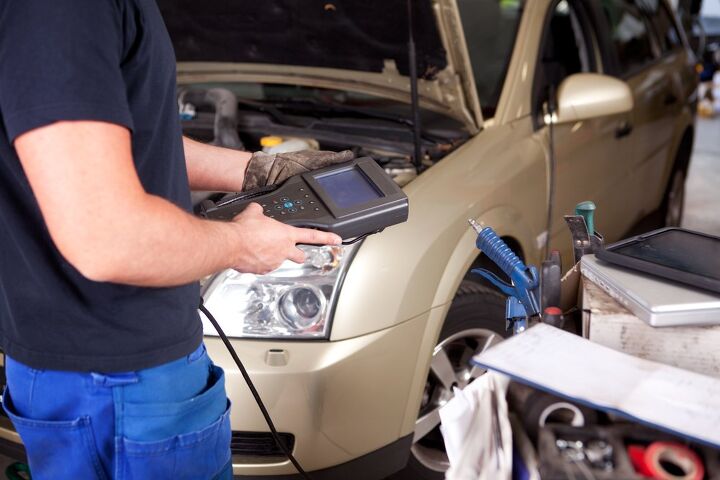#Government
Gas War: California Finalizes Side Deal With Automakers
The California Air Resources Board (CARB) made a slew of announcements on Monday regarding what types of vehicles will be allowed within the confines of its borders. These included everything from proclaiming aftermarket parts would be subject to a faster approval (or denial) process in the future, to announcing a joint initiative with 15 other states (most of whom joined CA in opposing the fuel efficiency rollback), to accelerating the implementation of electrified buses and trucks.
It also confirmed that California has finalized binding agreements with several automakers to cut vehicle emissions. BMW, Ford Motor Co., Honda Motor Co., and Volkswagen Group all entered into a voluntary agreement with the Golden State to adhere to Obama-era emission mandates last summer. While this prompted the U.S. Justice Department to launch an antitrust investigation into the deal, no action was taken. CARB said those companies — and some of their friends — made a binding commitment to California this month and will commit to its new emission targets, rather than the revised quotas set by the federal government.
Stand by Your Brands: Tata Motors Says It's Keeping JLR Around
Following a failed bid to secure a helping hand from the UK government, rumors arose that Jaguar Land Rover owner Tata Group was considering selling its controlling stake in the British automaker.
The so-called rescue package didn’t see the light of day because the government felt Tata wasn’t exactly in dire financial straits. If it wanted to rustle up some dough, it would have to look elsewhere. On Monday, Tata made it clear: Jaguar Land Rover will not become an orphan again.
Gas War: Inspector General to Investigate Fuel Rollback
Following requests from Senator Tom Carper (D-DE) for a formal investigation into whether the Safer Affordable Fuel-Efficient (SAFE) Vehicle Rules proposed by the Trump administration violates the Clean Air Act (or some currently undetermined regulatory requirement that might stop it from coming to fruition), the U.S. Environmental Protection Agency’s Office of Inspector General said it will indeed evaluate the emissions rollback.
As the ranking minority member of the Senate Environment and Public Works Committee, Carper’s opposition to the fuel rollback is to be expected. With politicians unwilling to find common ground and engage in good-faith discussions that might result in some amount of compromise in service to the people, opposition tactics have devolved into partisan lawsuits and trying to halt the new rules over technicalities.
Read My Lips: Michigan's Governor Issues a Warning
Auto plants across the U.S. are a beehive of activity as workers (and their bosses) seek to make up for lost time. The two-month coronavirus shutdown drained inventories, yet the virus that sparked the unprecedented closure of workplaces across the nation hasn’t gone away.
As you read yesterday, the ongoing pressures reportedly forced one Detroit-based automaker to take desperate measures just to keep the taps running. So Detroit Three automakers probably reacted with trepidation after hearing the U.S.’s most car-heavy state isn’t afraid to pump the brakes once again.
Volkswagen's Dieselgate Concludes in the U.S.
Volkswagen Group appears to have completed the terms laid out by the U.S. Department of Justice after it decided the automaker required some oversight in the wake of the 2015 emissions fiasco (colloquially known as Dieselgate). VW was found guilty of equipping certain models with emissions-cheating software that would allow the car to run cleaner under testing conditions (passing regulations) and dirtier, with better performance, the rest of the time.
The con was brilliant and allowed VW to fool regulators for years until it all blew up in its face. Getting caught in the United States kicked off a chain reaction that cost the automaker a fortune globally. In May, VW estimated it had spent €31.3 billion ($34.40 billion USD) in fines and settlements and fines globally — adding that it expects to bleed another €4.1 billion through 2021. But the company was certainly happy to announce on Monday that it had adhered to settlement deal it reached with the Department of Justice and California’s Attorney General.
Still Some Love for Internal Combustion in Italy
Nations like Germany might treat internal combustion engines like a shirtless man lighting up a Marlboro in a neonatal intensive care unit, but some countries still feel that they have a place in the automotive landscape. Italy even plans to put public dollars behind their purchase.
When economies and industries are suffering, governments can sometimes do the unthinkable.
The Hero We Need: Consumer Access to Repair Coalition
When it comes to activism, it’s best to choose your battles carefully. Fortunately, there aren’t too many causes within the auto industry and most are easy to get behind.
Even though environmental activists sometimes find themselves at odds with reality, their hearts are usually the right place, and they’ve encouraged automakers to try new and interesting things with transportation. Safety advocates can likewise go overboard, but we wouldn’t have seen cars get dramatically safer (or heavier) since the 1970s if they hadn’t.
Our favorite has to be consumer advocacy, however. With the exception of the occasional predatory lawsuit looking to take advantage of a dumb corporate decision, there’s precious little to scoff about. It also tends to overlap with our pet peeves by decrying bad business practices within the industry. Case in point, the Consumer Access to Repair Coalition has recently asked Congress to rethink how vehicular data is shared — noting that automakers shouldn’t need real-time monitoring for repairs and that the technology likely poses an unnecessary security risk.
Green Dreams: Unifor Releases New Economic Strategy for Canada
Unifor hopes to sway the Canadian government toward an automotive strategy centered around the adoption and manufacturing of electric vehicles and a totally revised economic system. On Wednesday, the union released its “Road Map for a Fair, Inclusive and Resilient Economic Recovery” while announcing that corporations have failed everyone.
It’s all part the #BuildBackBetter campaign, which sees the coronavirus pandemic that made 2020 a collective — yet strangely isolating — hell for all of us as a unique opportunity to rebuild society under the banner of economic justice. “Unifor’s plan is designed to build a more strategic and self-reliant economy that can both withstand and prevent future crises,” Unifor National President Jerry Dias said in the initial announcement.
“This is an ambitious road map but I think ambition is what our country and its workers need right now.”
Silver and Gold: Nevada Joins California in the Gas War
On Monday, Nevada Governor Steve Sisolak announced that his state will embrace California-crafted emissions rules that are at odds with the national rollback finalized by the Trump administration in March.
Officially, Sisolak said the rules would not require residents to abandon their current ride “or choose one that does not work for their lifestyle or business needs.” Nevada has, however, decided to adopt higher mpg standards, as well as the Golden State’s zero-emission vehicle (ZEV) rules that require manufacturers to sell a certain number of electric or plug-in hybrid models each year based on the total number of vehicles sold within the state.
Companies in compliance accrue ZEV credits, which can then be traded or sold to other manufacturers for money. As with the Corporate Average Fuel Economy (CAFE) system, those that cannot hit their targets (or afford to buy up credits) will be fined. Tesla actually used such arrangements to make $594 million off its rivals in 2019, with the prospect of things only getting more lucrative for the all-electric brand.
Lyft Promises to Swap Exclusively to EVs by Bullying Everyone
On Wednesday, ride-hailing company Lyft announced every vehicle using its platform will be electric by 2030. Since its fleet is comprised primarily of contractors using private vehicles, one might assume the company is planning to offer some financial assistance upon their next purchase. But being sensible rarely means being correct in the postmodern era.
Rather than encouraging its own drivers to make the switch, Lyft plans to work with NGOs, lawmakers, and pressure its industry rivals to make electrification mainstream. Obviously, this will include financial incentives for organizations willing to make the switch to EVs in exchange for a fat wad of cash. That’s what you’re now supposed to focus on. Ignore that Lyft’s announcement literally offers no personal commitment and passes every scrap of responsibility it pretends to be taking on to the government.
Lyft is trying to play the hero, and thinking about it too hard is going to muck everything up.
FCA Payday: Italy Readies $7.1 Billion for Automaker
Italy is on the cusp of approving a 6.3 billion-euro ($7.1 billion) loan for Fiat Chrysler Automobiles (FCA). Suppressed sales stemming from coronavirus lockdowns have encouraged governments around the globe to lend businesses a hand or — more accurately — fists full of money.
Bloomberg claims FCA’s payday will be Europe’s biggest government-backed financing of an automaker since the start of the pandemic, but it’s hardly the only company needing money. General Motors and Ford utilized credit lines to amass billions of dollars for their rainy day funds — and it’s definitely pouring outside. Ford figures it lost roughly $5 billion in operating costs in the three months leading up to June. Meanwhile, Fiat Chrysler estimates it lost $5.5 billion through the first quarter of this year.
The Only Way Forward? Germany Goes All-in on EVs
Germany isn’t fooling around anymore. Electric cars are going to become the norm, and that’s final.
After pledging last year to boost electric vehicle subsidies by 50 percent over the first half of the decade, Germany has doubled down on its EV efforts in the wake of the coronavirus pandemic. If you’re in the market for a gas-free car, expect the government to fill your pocket with cash. If you’re the buyer (or the maker) of a gas-guzzling SUV, look out.
Mexico to the Rescue As Suppliers Resume Operations
Mexico is attempting to accelerate parts production to ensure North American automakers have enough components on hand to stay operational. The response to the pandemic saw manufacturing stalled worldwide as governments assessed whether or not we’d soon be living through a plague of biblical proportions. While fate decreed a repeat of the Black Death would not be necessary, untold damage resulted in numerous business sectors.
The automotive industry hardly went unscathed. Lockdowns stopped sales in many markets for months and plunged supply chains into turmoil as OEMs shut down to ensure staff were helping to “flatten the curve.” With the public’s interest shifting rapidly away from coronavirus mandates toward demonstrations about police brutality and racial justice, or simply devolving into riots because people are pretty angry about how poorly 2020 is playing out, suppliers and automakers are gradually moving back to more normal production schedules.
This has been easier said than done. But it is being done, and that’s the important thing.
Ghana Have Factories: African Nation Bans Importation of Old Cars
Ghana has banned the importation of cars older than 10 years in a move designed to attract automotive plants. As a major importer of second-hand vehicles, the West African nation is largely dependent upon cars discarded by other nations. However, the country’s leadership wants it to become an automotive hub for at least a healthy chunk of the continent. This is a relatively new yet persistent dream for the nation, and it includes a bizarre roster of characters we don’t quite know what to make of.
Gas War: States Sue Trump Administration Over Fuel Rollback
Following America’s fueling feud has shown your author that it’s less about finding a reasonable compromise that works for consumers, the automotive industry, and environmental activists, and more about perpetuating ideological wars that now seem to surround every topic filtered through the news media.
Encouraged by industry leaders just days after taking office, President Donald Trump made the fuel economy rollback one of his first initiatives. It wasn’t until March that the softened final draft emerged, however, and it won’t be enough to conclude the almost four-year battle. A collection of 23 states filed suit against the Trump administration’s easing of emissions standards on Wednesday. They argue that the rollback is illegal and based on bunk information.
While we’ve also been suspect of some of the metrics used to make the rollback look more desirable, fueling standards haven’t adhered to reality in some time. The Obama-era standards that would have seen Corporate Average Fuel Economy (CAFE) rise to 54 mpg by 2025 were deemed unsustainable by that administration’s Environmental Protection Agency (EPA) and the National Highway Traffic Safety Administration (NHTSA), but were put into play anyway.





























Recent Comments